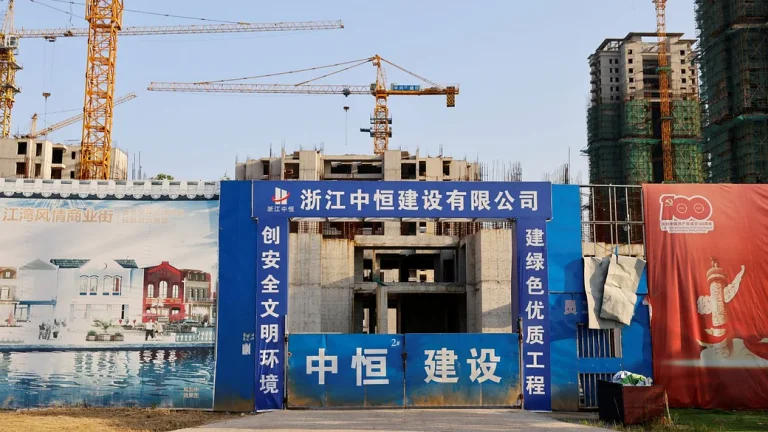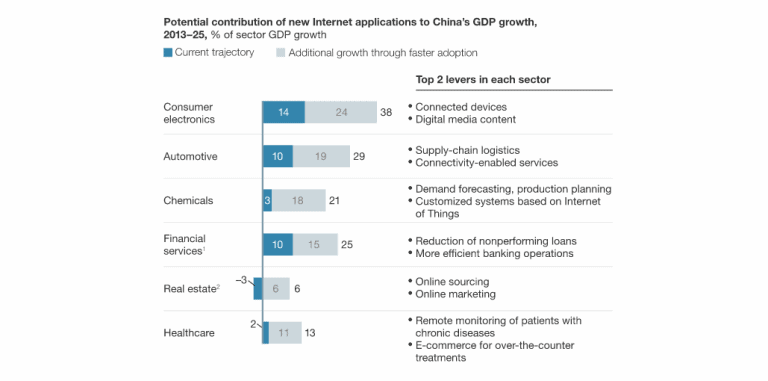Chinese property crisis is an opportunity for oversea real estate investment
Chinese Rich people use to invest in real estate in China first, but the property industry is in crisis. One of China’s most successful real estate developers has defaulted, a sign that more trouble is on the horizon for this industry.
Shimao had met all three requirements of Beijing for developers’ debt levels and stated that the company’s difficulties were indicative of wider pressures for business transformation in today’s environment.
Shimao Group shares plunged by more than 17% on Friday, after Reuters reported that the property developer had failed to repay a trust loan. In a filing, a subsidiary of the company stated that it was currently in negotiations to resolve the payment. Hong Kong shares closed more than 5 percent lower, but major developers saw gains.
China’s huge real estate sector has been under severe pressure since Beijing attempted to decrease developers’ dependence on debt over the past two years. In the past few months, global investors have mainly focused on China Evergrande’s ability repay its debt and any potential spillovers to China’s economy.
China courts freeze $157 of Evergrande assets over missed construction payments
A few developers have reported financial difficulties in recent months. Shimao’s problems stand out.
China’s real-estate problems are spreading to even once-healthy developers
China is a nation that saves money, and real property is where it stores its money. According to Loomis Sayles, a huge share of China’s household wealth (70%) has been channeled into real estate by the boom in homeownership over recent decades. This percentage is 35% in the United States.
Recognizing China’s declining population growth, slowing urbanization and inflated home prices, Beijing is now trying to get the property sector to stop relying on debt. This is putting developers out of money, making projects such as Sunshine Peninsula impossible to finance. It also adds urgency to Beijing’s push to get citizens to invest in other ways, like the stock market. After years of highs, home sales are beginning to fall and housing prices are falling. This is an early sign that Chinese citizens might be reconsidering their role as trusted banks.
China’s attempt to control its debt-ridden real estate market has turned into a high-stakes balancing exercise: It must clamp down on excessive property construction, but not squeeze so hard that it makes developers go under.
Bank credit is being extended to property firms at an even higher level than during any period in the second or third quarters. Mortgage lending increased to 200 billion Yuan ($31bn) in October, compared to 150 billion Yuan ($23.5bn) in the previous month.
Officials in China are speeding up approvals for property loans and home sales. They also ease restrictions on the use of proceeds from presales. Some cities have relaxed rules regarding land parcel sales in response to cash-strapped developers who are reluctant to bid for land. source
China wants to ensure there is enough liquidity to support construction in the property industry. It doesn’t want an immediate flow of credit, which is the exact practice it has been fighting to eradicate for many years. Their challenge is to find the magic point that will allow them to have sufficient liquidity while also preventing reinflation in the property sector.source
Why Chinese purchase overseas properties?
The Chinese are now more inclined to buy properties overseas due to the devaluation of their yuan, the rise of the middle class and the slowdown in the Chinese economy. This topic actually covers two sides, which we will discuss in the analysis below. It remains to be determined in which countries Chinese money is being invested. The second is where do the Chinese locate their overseas properties?
How Chinese investor find overseas properties?
Many Chinese people look on official websites to find more information, and to check the company’s expertise. A second trend concerns Chinese customers, who are searching for this “opportunity”, especially via social media channels (QQ and Wechat…etc). ).
Business Guide for Chinese Real Estate Investors
This opportunity will offer a great price, a great place, and the right time for Chinese consumers. This social media tool allows them to compare offers and receive feedback from other social media users. Because users browse properties websites using their mobiles, companies overseas are also trying to optimize mobile tools.
Chinese investors’ love for real estate properties
China has experienced tremendous volatility in the past few years when it comes to overseas property investment. China has a population of over 1.3 billion people. Its GDP grew by approximately 7%, and there is a huge potential market for overseas real estate investors. Investors seek better opportunities in terms work, environment, immigrant investments, and educational opportunities.
Aside from the fact that real estate prices in China are on the rise, Chinese investors are looking for better opportunities around the globe to purchase a property in another country.
China’s rapid development and globalization have also boosted the real estate market. The foreign investment of Chinese companies has seen rapid growth over the past decade. It reached its peak in 2016 with more than 196 billion dollars outflows, and it declined during the Covid-19 pandemic. China ranks just behind the United States as the largest foreign investor.
Growing Investment Into Foreign Real Estate
China’s overseas investments were a way to boost its economy and to leverage its economic power to expand its reach abroad. The Belt and Road Initiative and Beijing’s “Going Out” strategy were highly encouraging. Their purpose was to encourage foreign investment as well as real estate investments.
China’s Real Estate Investors: Online Leads/prospect Generation
China boasts an internet penetration rate of 70%, with more than 940 million Chinese connected online. Every day, China has approximately 350 million people who are part of the’middle and upper class’. You will need a comprehensive digital strategy if you wish to reach China’s upper and middle classes. Why? Because China is a unique market and has its own websites, ecommerce platforms, social media, and other online services.
Adapt to Chinese rich people : the key for your Business
China is a country where digital is the best way to generate leads. This is because China is one of the most internet-centric countries in the world, and it is also a place where investment is a common practice. It is no surprise that Chinese spend an average of 1.5 hours per day searching for information. The younger generation, which is tech-savvy, uses social media to share content with friends and family.
A nice website in Chinese host in China
Your digital strategy should include a Chinese website. It is important to remember that most Chinese people don’t speak English fluently so they won’t be able to read websites written in simplified Chinese. This is also a key to your rank on Baidu search engine. You are virtually invisible in China no matter how well-respected you may be in the United States. The “great firewall” makes it impossible to access all your positive reviews.

Traffic = Baidu
It is important to have a Chinese website that is well-designed. This will allow potential investors to understand the company and the property you offer. You can optimize your website for smartphones and computer users if you are able. The majority of Chinese people use their smartphones to search online.
inbound marketing to your website are a great way to increase traffic to your site and improve your ranking in search results. You should also keep in mind that not all overseas investors will have access to the property they invest in. It is important to present a broad range of asset profiles, with concise details, so that investors can better understand what they are getting.
Video the new tool to generate askings
Another great way to view what you are providing is through video. You can also create high-quality videos from the properties of your video. Your website, videos, images and websites should all be translated well into mobile format. Most Chinese use their mobile phones for their web research. You can send the above-suggested content directly to investors by using IM on a WeChat profile.
SEO is the best way to sell your properties to Chinese investors
You must increase your website’s visibility after creating it. Baidu, the most used search engine in China and the 5th most visited website worldwide, is a crucial step to take if you are looking to sell real estate. Baidu is responsible for 75% of all investment and property research. To master Baidu you must first optimize your website to rank on the first results page of Baidu.
Baidu allows you to display and promote your company. Statistics show that you could lose up to 65% of your potential traffic if you don’t appear on the first search results page.

It is highly recommended that you do search engine optimization to get on the first page. Baidu will help you rank higher if you search for the right keywords. This Chinese website will serve as your “storefront desk” for China. PPC can also be a great complement to the ongoing search engine optimization by real estate companies. This will ensure you remain in the top spot for paid search results while real estate will still offer a great ROI. Combining these two methods works best for PPC. This was more important at the beginning of your market entry, but SEO has become more feasible after several months of active marketing.
Your website will have to be optimized & audited on the ‘back end’ (meta tags/descriptions/titles, etc) for a most effective SEO (Search Engine Optimization).
Use social media to promote your properties in China
WeChat, the most used social media app in China is essential if you are looking to dominate the Chinese market. It is therefore important to be familiar with WeChat’s internal operations and promotion methods. Your audience will be able to contact you directly if they have an official WeChat profile. Potential investors will be able to view updates from your company and photos of your properties via your WeChat moments.
You can share any new properties on your official account, so your followers can instantly see them. WeChat is the best way to build a relationship with Chinese investors. WeChat is the first step towards conversion. You can access almost every website in China via QR code. Make sure to include your QR code in your WeChat account. Potential investors will be able to follow your official account directly.
How Chinese will contact you ? WeChat
You can use a lead generation form to get traffic to your website. In China, it is also possible to embed QR codes links to drive traffic to your WeChat account.
The ‘Baidu Live chat’ tool is also available. This allows you to contact investors while they browse your portfolio and content. Rich content means more time browsing, and greater chances of making contact via live chat.
China’s importance of reputation in investment
Your company may be well-established in China, but Chinese consumers will still be wary. You will need to be careful about your online reputation. Use digital tools to improve your visibility, promote and earn their trust. Investors can look for information at China news sites such as Sohu or Fung Fung. You won’t reach potential Chinese clients if you don’t have a presence on Chinese social media or you haven’t created Chinese content yet. Contact us for more information on e-reputation China.
You want to know more ?
Contact us








Hello,
I have clients that want to buy oversea real estates. (USA, Canada, Europe, Australia).
Contact me , I am an independant real estate agent based in Shenzhen.